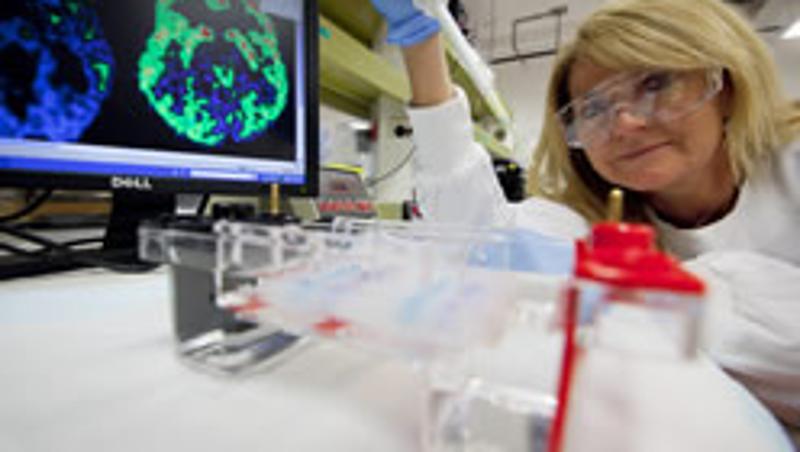
Teenagers who binge drink risk inhibiting part of their brain's development and many are laying the groundwork for alcoholism down the track a Queensland University of Technology (QUT) researcher has found.
Professor Selena Bartlett, from QUT's Institute for Health and Biomedical Innovation (IHBI), studied the effect excessive binge drinking during adolescence had on a particular receptor in the brain and discovered teen bingeing altered it irreversibly, keeping the brain in an adolescent state.
"The human brain doesn't fully develop until around age 25 and bingeing during adolescence modifies its circuits, preventing the brain from reaching maturity," she said.
"During adolescence, the brain undergoes massive changes in the prefrontal cortex and areas linked to drug reward but alcohol disrupts this.
"The research, which was carried out on rats, suggests that during ageing, the brain's delta opioid peptide receptor (DOP-R) activity turns down, but binge drinking causes the receptors to stay on, keeping it in an adolescent stage.
"The younger a child or teenager starts binge drinking and the more they drink, the worse the possible outcome for them."
Professor Bartlett said recent trends to mix high-caffeine drinks such as Red Bull with alcohol were making the binge drinking problem worse.
"Historically, a young person who'd had too much to drink might be sick, pass out or fallen to sleep but now the high-caffeine drinks keep them awake longer enabling them to drink even more," she said.
"Other studies have shown that over 60 per cent of Gen Y drinkers are engaging in risky drinking behaviours.
"Youth binge drinking is something parents should be concerned about," she said.
"Because it inhibits part of the brain's development, binge drinking over time keeps people in an emotionally immature state and often leads to huge problems when in their 30s and 40s when people come face to face with the demands of life.
"We're making this information available, not to be wowsers, but because our research shows that binge drinking does inhibit the brain's development and can causes drinking problems in adulthood.
"It's about providing information so people can make informed choices about the quantity and strength of the alcohol they consume."
She said alcoholism had a huge impact on families and society and it was important that people knew that binge drinking played a role here.
Professor Bartlett's research was recently published in high-profile The Journal of Neuroscience. http://www.jneurosci.org/content/32/13/4540.full
Professor Bartlett is a recipient of an Australian Research Council Future Fellowship and the research was funded by the National Institutes of Health and State of California funding from the United States, where she began the research.
She is a member of the Translational Research Institute as well as the Institute for Health and Biomedical Innovation at Queensland University of Technology.
Media contact: Rose Trapnell, QUT media team leader, 07 3138 2361 or 0407 585 901 rose.trapnell@qut.edu.au




